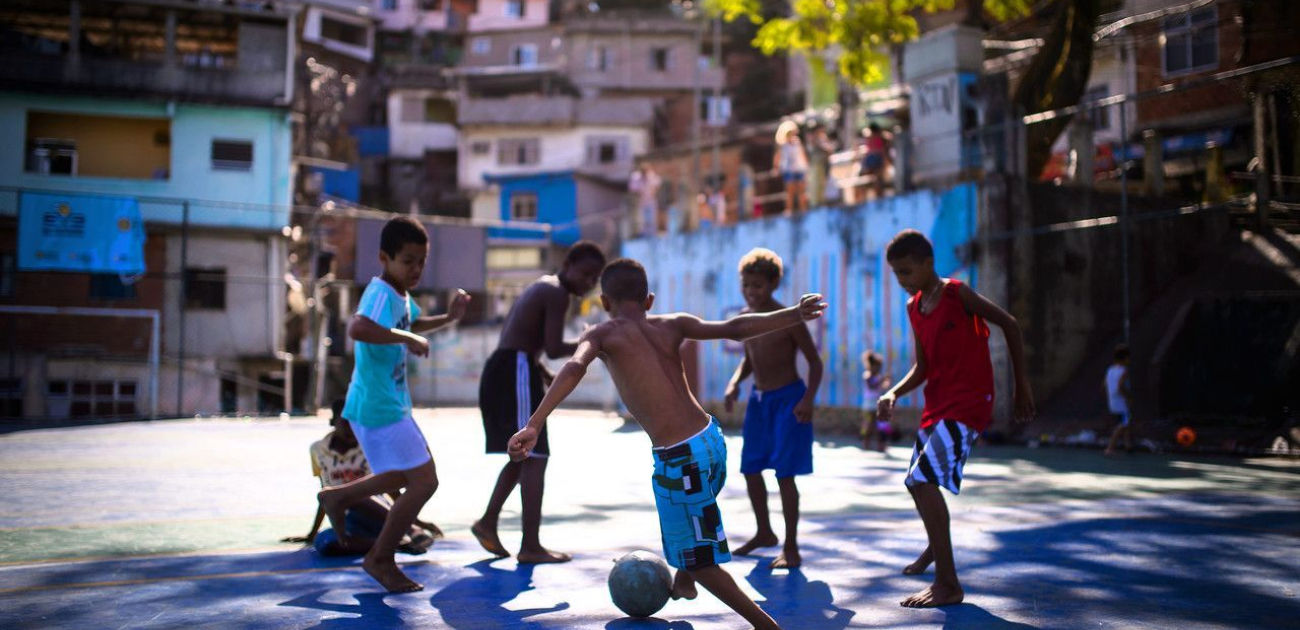Barack Obama, Brazil, Football, Education and the Bill Pending in the Federal Senate, Which Creates the New Football System
In his book "Dreams From My Father", the ex-president of the United States of America, Barack Obama, narrates a certain episode, which occurred in the 1980s, related to his role as organizer of social movements and actions.
When looking for the director of a public school located in a neighborhood forgotten by the Chicago municipality, to propose to him the formulation of projects that involved the participation of members of the local community, with the purpose of stimulating the integration and the awareness of young blacks about the dangers of the diversions provided by the streets, Barack Obama was recommended and directed to a school counselor, who received him to address his proposals.
The counselor's office was lined with images and objects of African origin, and he himself displayed pieces of the same origin in his clothing. The reasons could not be more revealing: the American public education system did not intend to educate black children; it was, in fact, a program of social control, a kind of intellectual prison.
On the other hand, effective education should begin with teaching about the very origin of those students, their culture, their community and, especially, about themselves. Only in this way would incentives for learning be created: showing them that they were part of something, that they could lead actions and results in their environments. But no: black children learned to respect the history of others, the cultures of others, the same ones that rejected them and denied their humanity.
African references were intended to fill existential and cultural gaps, and to maintain a kind of call to reality.
Despite the similarity with the problems of formal education in Brazil, which is also insufficient to face its main dilemmas, this is not what this text is directly about.
However, a comparison with the football situation is proposed.
For various reasons, the practice of football, as a profession, is not usually a real option for favored children, upper class or even middle class. They do not have to go through the difficulties of professional football to take a position in society, as they have other ways. Even so, if they want, they can achieve their sporting goals: Kaká and Caio Ribeiro are two emblematic examples.
The range of options, by contrast, does not extend to children from the lower classes. Social ascension is a distant - if not impossible - desire, except, in many cases, through football: the only one able to materialize children's dreams, which also usually involve offering better conditions to their respective family members.
The problem is that a substantial portion of children who bet - or are subjected to collective bet - on football, do not reach the desired stardom. First, because the demand is much greater than the offer of player positions in top teams; second, because it will be lost by the arduous path of professionalization; and third, because not all suitors have the necessary attributes to become top players.
In this environment, the associative club should fulfill a function that goes beyond the simple provision of formal education to recruited children and adolescents, which, as is known, is not enough to place them, without complementary effort, on an equal footing with peers attending private schools and supplementary courses in various disciplines (languages, technology, etc.).
The counterpart to the clubs, for the subsidized activity that they exercise - and that guarantees them eternal consumers, after all the fans do not change teams -, should be more dignified: the formation of citizens able to face the vicissitudes of life, both in the eventual exercise of the profession football, as in the course of other professional activities.
The truth is that associative clubs, for the most part, have failed in their economic function: they are deficient and insolvent, and they cannot survive without the historical and recurrent subsidies of the State; moreover, they are no longer in a position, also for the most part, to fulfill the social and educational role assigned to them.
Only the National Congress can create the incentives to reverse and transform this state of affairs. And the solution principle is contemplated in PL 5.516 / 19, by Senator Rodrigo Pacheco (DEM / MG), who created the new football system and, in it, instituted the Educational Development through Football Program, through which the Society Anônima do Futebol (SAF) may establish an agreement with a public educational institution to promote measures in favor of the development of education through football, and football through education, with the purpose of (i) encouraging the attendance of enrolled students in public schools, (ii) encourage the involvement and interest of students in educational activities promoted by the public school and (iii) contribute to the education and training of public school students.
It is an effective and genuine stimulus to attract children and adolescents to classrooms and, thus, to create a necessary system of social insertion and economic ascendancy.
Do you want more information?
 Rodrigo Monteiro de Castro
Rodrigo Monteiro de CastroRodrigo Monteiro de Castro is specialized in corporate and business laws, corporate transactions (M&A), capital markets and contracts.

